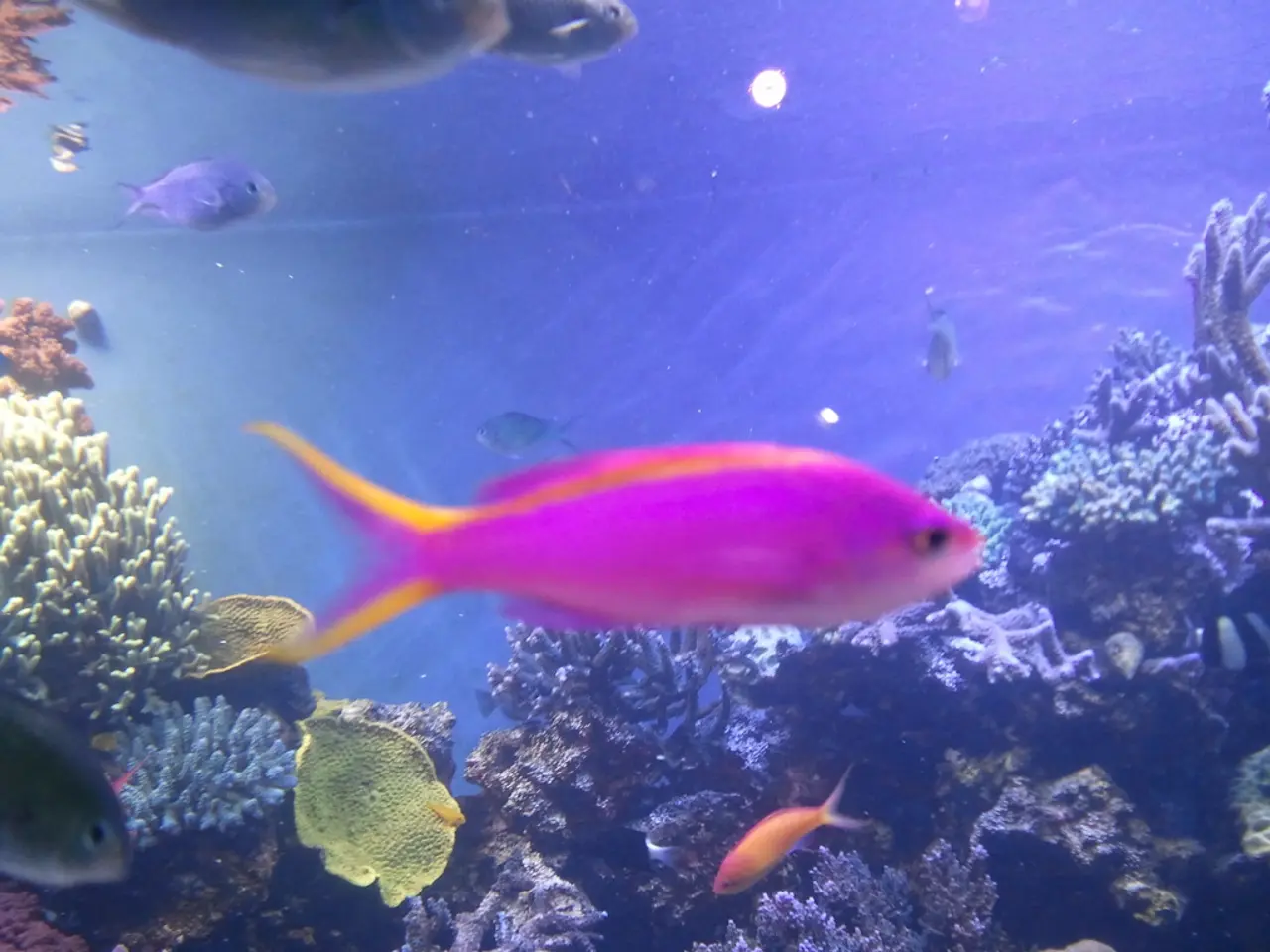Sustainability Prize Claims by Graduate from Scripps Institution
Ayana Elizabeth Johnson, a marine conservationist and the Director of Science and Solutions for the Waitt Foundation in Washington D.C., has won a prestigious global prize for her low-tech fish trap innovation that significantly reduces bycatch[1]. This invention, which focuses on sustainable fishing practices, particularly in coral reef fisheries, emerged from Johnson's research in marine biology[2].
The novel fish trap design allows non-target species such as sea turtles, sharks, and other important marine animals to escape while still capturing the intended fish species[3]. This ingenious solution has the potential to minimise ecological harm and promote marine conservation.
Johnson's proposal for using escape gaps in coral reef trap fisheries was one of the ten finalists chosen in the "Solution Search: Turning the Tide for Coastal Fisheries" contest[4]. The winners, including Johnson, received their awards at a ceremony in Washington, D.C., on February 8[5].
The escape gaps in Johnson's fish traps are designed to allow narrow-bodied, compressible fish to escape, increasing fishery selectivity and sustainability[3]. Research conducted in Curacao and replicated in Kenya by Tim McClanahan showed that traps fitted with gaps reduced bycatch up to 80 percent, without reducing catch value[6].
Johnson expressed hope that the publicity from winning the award would help spread the idea for making fishing with traps more sustainable[7]. Her research aims to find sustainable solutions for problems that affect oceans and coastal communities, with a focus on addressing issues at the intersection of socioeconomics and ocean conservation in developing countries[8].
The fish trap innovation is a testament to Johnson's dedication to marine conservation, which began during her childhood visits to aquariums in Brooklyn, New York[2]. Her work has received notable media coverage and recognition, suggesting influence in conservation circles and potential interest in broader application[3]. However, specific details on global implementation beyond recognition and coverage are not present in the search results[3].
References: 1. The Solution Search Winner: Ayana Elizabeth Johnson 2. Ayana Elizabeth Johnson 3. Ayana Elizabeth Johnson Wins Global Solution Search Prize 4. Solution Search Finalists 5. Global Solution Search Prize Ceremony 6. Bycatch Escape Gaps for Fish Traps in Curaçao and Kenya 7. Interview with Ayana Elizabeth Johnson 8. Ayana Elizabeth Johnson: A New Generation of Marine Conservationists






